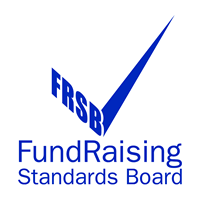FRSB seminar addresses bad data and direct mail
Fundraisers were given best practice advice on working with supporter and prospect data at a seminar by the Fundraising Standards Board (FRSB) this week, held to address the fundraising issue most often complained about by the public, direct mail.
Earlier this year the FRSB’s 2009 Annual Complaints Report showed that direct mail accounted for 35% of complaints, citing mailing to deceased, data protection issues and poorly addressed communications.
Focusing on data management standards, the seminar asked charities ‘Is your supporter data up to standard?’
The seminar was presented in partnership with specialist data asset management company and sponsor, The REaD Group, which loaned its data experts for free one-to-one open data surgeries during the day.
Richard Evans, Compliance and Legal Services Manager of the Direct Marketing Association, reiterated Data Protection Act rules about opt-in and opt-out permissions when collecting data, saying that: “We discourage the practice of using a pre-ticked box for opt-in collections as we feel this is confusing for the consumer, many people do not realise they can un-tick the box.”
He also encouraged those managing data to seek formal compliance training, and warned charities of the new powers appointed to the Information Commissioner in April 2010 to fine up to £0.5 million for breaches of the Data Protection Act.
The REaD Group plc announced the findings of its ‘Consumer Attitudes Report – Direct Marketing from the Third Sector’ at the event. These included the fact that 29% of supporters say they would stop supporting a charity that sent them badly targeted direct mail.
Glen Cook, Head of Supporter Services and Database Marketing at Macmillan Cancer Support, told delegates that “Cleaning your data could cost you 50% less than the cost of campaign wastage and returns from bad data.”
Delegates also heard that the industry accepted data decay rate is 14-15% per annum. So, if you only clean your data once a year by month 12 you can expect 15% wastage from bad data alone.
Smaller charities were encouraged to use cost-effective online DIY cleaning products which charged using a ‘pay per match’ model: in this way they pay only for the bad data records identified like deceased or change of address.
Chair of the FRSB, Colin Lloyd told delegates: “Data is the fundamental DNA of an organisation and it’s essential to keep it up to date, clean and compliant. The higher your data standards the more it will reward you in insightful targeting, campaign returns, and long term meaningful relationships with your supporters.”
www.frsb.org.uk



